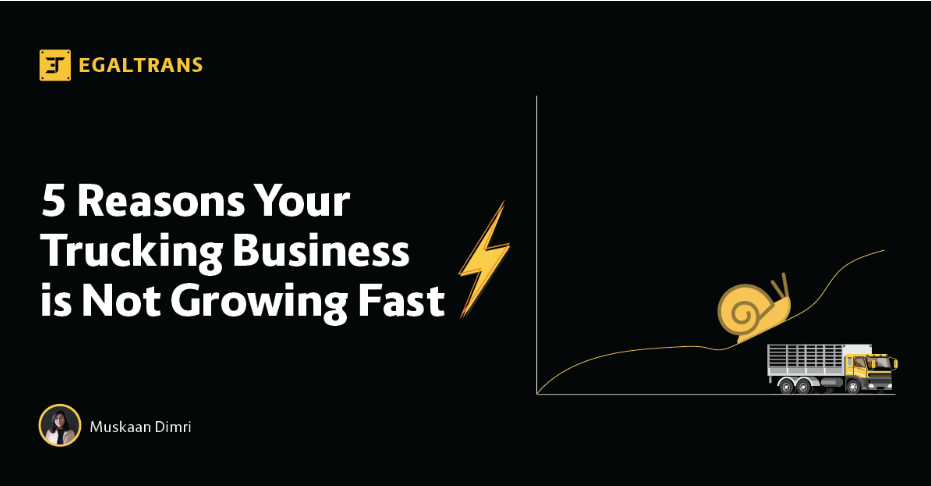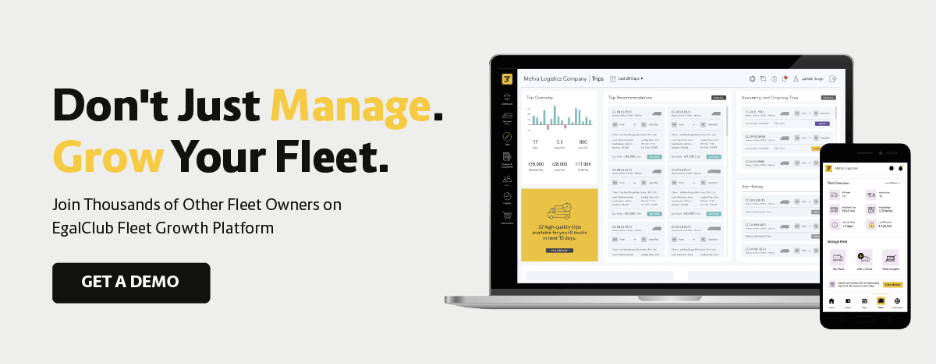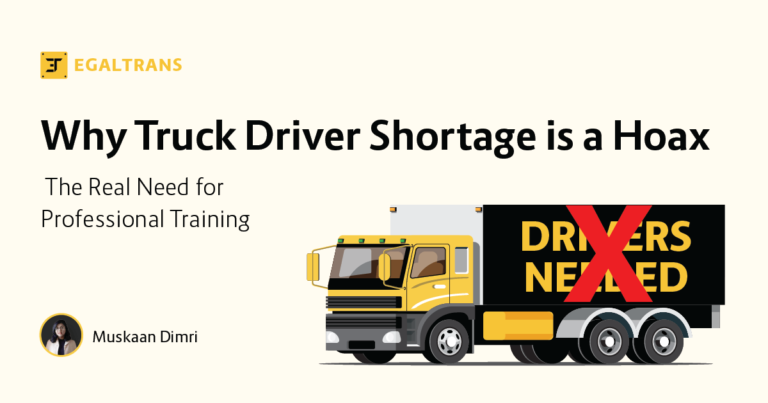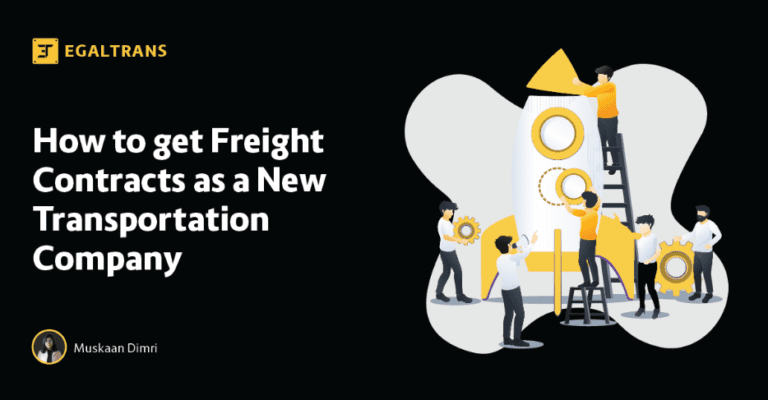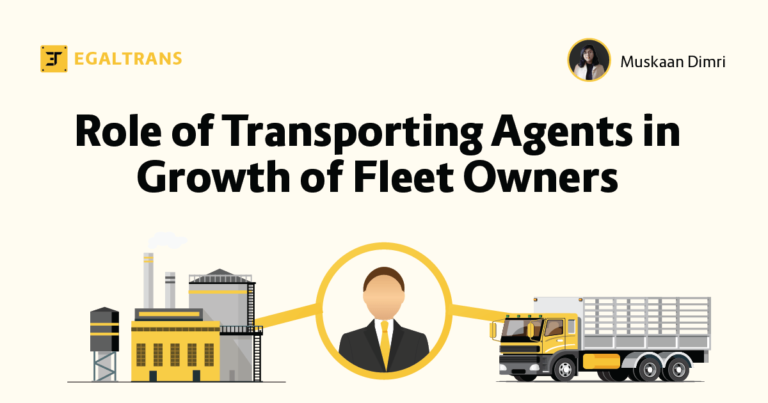Running a successful trucking business requires careful planning, efficient operations, and a focus on growth. Growing a trucking business requires addressing various challenges and implementing effective solutions. By reducing dependence on external agencies, diversifying routes, automating operations, prioritizing maintenance planning, and investing in driver training and upskilling, you can position your business for rapid growth. If your trucking business is not growing as fast as you’d like, it’s important to identify the reasons behind the slowdown. In this article, we’ll explore five common reasons why trucking businesses face growth challenges and discuss strategies to overcome them.
Major Factors for Slow Growth of Your Trucking Business
- Limited Customer Acquisition: Depending on External Agencies for Customers and Freight
One common obstacle to growth is relying heavily on external agencies to acquire customers and secure freight. While partnering with agencies can be beneficial, solely depending on them can limit your business’s growth potential. Instead, consider implementing a proactive customer acquisition strategy. Invest in marketing efforts to build your brand, establish a strong online presence, and engage with potential customers directly. This way, you can expand your customer base and reduce reliance on external agencies.
- Lack of Diversification: Stuck on a Few Routes
Operating on a limited number of routes can hinder your business’s growth prospects. Over time, focusing on just a few routes can lead to stagnant revenue and a lack of new opportunities. To overcome this, consider diversifying your routes and expanding your service areas. Conduct market research to identify emerging routes and industries with high demand. By expanding your reach, you can tap into new markets, attract more customers, and fuel the growth of your trucking business.
- Inefficient Operations: Lack of Automation
Efficiency is crucial for the growth of any business, including trucking. If your operations rely heavily on manual processes, it can slow down productivity and hinder scalability. To address this, invest in automation technologies. Implement transportation management systems (TMS) that streamline tasks such as load planning, dispatching, and tracking. Automation can significantly reduce administrative burdens, improve operational efficiency, and free up time for your team to focus on strategic growth initiatives.
- Poor Maintenance Planning
Neglecting proper maintenance planning can lead to unexpected breakdowns, costly repairs, and inefficient use of your fleet. Regular maintenance not only ensures the longevity of your trucks but also minimizes downtime and enhances safety. To address this issue, develop a comprehensive maintenance schedule for your vehicles. Implement preventive maintenance programs, track maintenance history, and proactively address issues before they become major problems. Well-maintained trucks lead to improved reliability, lower operational costs, and increased customer satisfaction.
- Insufficient Driver Training and Upskilling
Your truck drivers are the backbone of your business, and their skills and performance directly impact your growth. If your drivers lack adequate training or opportunities for upskilling, it can hinder your business’s progress. Invest in comprehensive driver training programs that cover safety, compliance, and customer service. Provide ongoing opportunities for professional development and upskilling, such as defensive driving courses or advanced certifications. By investing in your drivers’ skills, you can enhance their performance, reduce accidents, and improve customer satisfaction, ultimately driving the growth of your trucking business.
Investing in Integrated Freight and Fleet Management if Your Trucking Business is Not Growing Fast Enough
Investing in freight and fleet management can be a promising opportunity in the trucking industry. Effective management of freight and fleets can significantly improve operational efficiency, reduce costs, and enhance overall business performance. Additionally, investing in a fleet growth platform can provide you with advanced tools and technologies to streamline your trucking business.
Integrated fleet management platform offers numerous advantages for businesses that rely on a fleet of vehicles. Some key advantages include:
- Centralized Control: Integrated fleet management software provides a centralized platform to manage all aspects of a fleet
- Real-time Monitoring: With integrated fleet management software, businesses can monitor their vehicles in real-time.
- Cost Savings: Fleet management software helps businesses reduce costs in various ways. It optimizes routes to minimize fuel consumption and mileage, leading to significant fuel savings.
- Maintenance Management: The software helps in streamlining vehicle maintenance schedules. It provides alerts for routine maintenance, such as oil changes and tire rotations, based on mileage or time intervals.
Egal Club Fleet Growth Platform is a growth oriented platform which provides insights to keep your fleet on the right track. Egaltrans is a technology driven company and prides itself on cutting edge, highly secure and completely reliable technology solutions. Our fleet management system is based on the most accurate sensors and advanced data science to ensure unprecedented accuracy.
In conclusion, identifying and addressing the factors hindering your trucking business’s growth is essential for achieving long-term success. By reducing reliance on external agencies, diversifying your routes, implementing automation, prioritizing maintenance planning, and investing in driver training and upskilling, you can accelerate the growth of your trucking business. Remember, consistent effort and a focus on continuous improvement are key to overcoming growth challenges and thriving in the competitive trucking industry.


